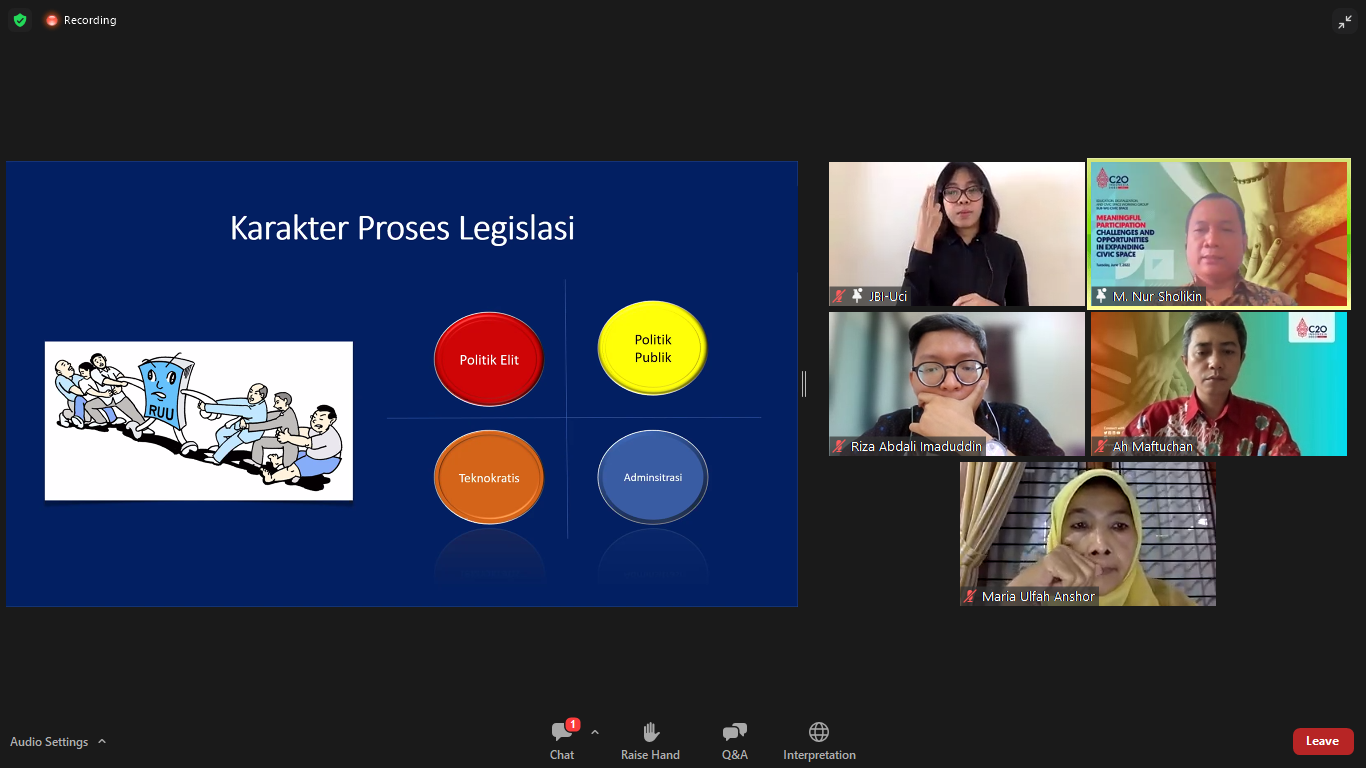Meaningful Participation: Challenges and Opportunities in Expanding Civic Space
The discussion was opened by Ah Maftuchan, the C20 2022 Indonesia Sherpa, and moderated by Riza Abdali (Yappika-ActionAid). Four speakers from Indonesia and India presented their ideas and observation on civil society participation challenges and possible recommendations to the situation. We thank you for your active participation in the webinar.
For those of you who were unable to join, we provide you with the recorded version here:
The first speaker, M Nur Sholikin from Indonesian Center for Law and Policy Studies (PSHK) elaborated several issues regarding the implementation of meaningful participation in the Indonesia legislation experiences. Among others, according to Sholikin, is the elitist style of regulation making where the discussions remained an exclusive domain of political actors. For example, despite the substantive norms encouraging participation, the Indonesian government recently enacted an amendment to Law Number 12 of 2011 which even more shrinks citizen control since the law only allows those directly-affected by regulation to participate.
Next, Jagat Patnaik, the Asian Region Head of ActionAid, explained the global context of meaningful participation. Patnaik mentioned ideological reasons such as the populist trend driven by people in power, and pragmatic reasons such as the restriction on civil society organisations activities, among the challenges to expand meaningful participation. He also presented several ideas on what the G20 country leaders should take in order to have meaningful participation truly implemented such as enabling digital inclusion for transformation.
The third speaker, Maulani Rotinsulu, the Chairperson Indonesian Association of Women with Disabilities shared insights on how disability groups encourage participation in policy formation, both on a national and regional scale. Initiatives to form public policy for disabled groups, according to Rotinsulu, had always been started by civil society organizations as state authorities were mostly passive when it comes to disability perspective. In such a perspective of person with disability, meaningful participation means the State must provide and guarantee fair accessibility so that they can directly be involved as subjects in the policy making process.
The last speaker, Maria Ulfah Anshor from the Indonesian Commission on Violence Against Women (Komnas Perempuan) presented success experience to advocate gender perspective in policy making. For Maria, the distinct gender role that women have to endure is among the reasons why women must always be included in any deliberative policy making process. Adopting the gender perspective is so important when it comes to inclusive and meaningful participation.

